News + Media
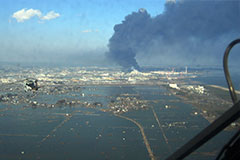 |
précisSeptember 16, 2021Japan’s 3.11 triple disaster and its impact 10 years laterNearly 20,000 Japanese—and most of their worldly possessions—were washed away in a matter of minutes when Japan was struck by the most powerful earthquake in its recorded history on March 11, 2011. 340,000 survivors were displaced, and only a fraction ever returned to their homes. Richard Samuels revisits its impact one decade later. |
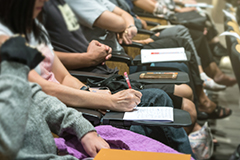 |
précisSeptember 16, 2021BriefingsHuman rights journalist Ada Petriczko joins CIS as its Elizabeth Neuffer Fellow; Ice melts on US-Sudan relations, providing new opportunities; MIT-Japan Program establishes the Patricia Gercik Memorial Fund; Apekshya Prasai receives 2021 Jeanne Guillemin Prize; Exploring generations of influence between South Asia and MIT |
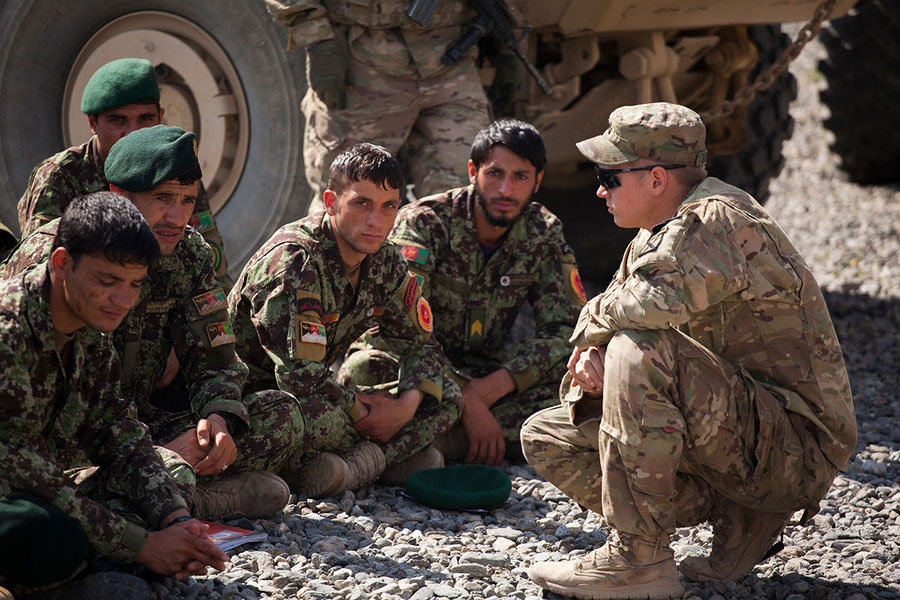 |
In the NewsSeptember 16, 2021What’s the next chapter in Afghanistan?Peter DizikesMIT NewsAfter nearly 20 years, the US has withdrawn its troops from Afghanistan, and the Taliban has regained control over the country. In light of those developments, a panel of foreign-policy experts on Tuesday addressed two separate but related questions: Why did the US military action in Afghanistan fall short, and what comes next for the strife-ridden country? |
 |
In the NewsSeptember 15, 2021Kim Jong Un’s North Korea nuclear weapons development puts Biden to the testEdward White and Kana Inagaki The Financial TimesQuoted: Vipin Narang, a nuclear policy expert at MIT, said as North Korea “matures as a nuclear weapons power it is likely seeking to develop capabilities that all ‘normal’ nuclear powers seek to augment”. That includes boosting their “survivability” against the US by improving their diversity and quantity of weapons, and adding more mobility, including sea-based capabilities, he said. |
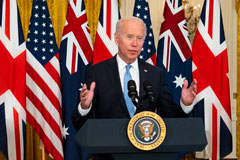 |
In the NewsSeptember 15, 2021Biden announces defense deal With Australia in a bid to counter ChinaDavid E Sanger and Zolan Kanno-YoungsThe New York TimesQuoted: “Attack submarines are big deal, and they send a big message,” said Vipin Narang. “This would be hard to imagine five years ago, and it would have been impossible 10 years ago. And that says a lot about China’s behavior in the region.” “There will be many who say we are giving the Australians a gateway drug for a nuclear capability,’’ Mr Narang said. “It is not something we would let other major allies get away with, much less help make it possible.” |
 |
précisSeptember 15, 2021ActivitiesMIT X True Africa University webinars; MISTI's Global Seed Funds 2020–21 winners receive more than $1.9 millions; CIS awards 17 summer study grants; Starr Forums; SSP Wednesday Seminars; Emile Bustani Middle East Seminar; Myron Weiner Seminar Series on International Migration; Global Startup Labs at MISTI |
 |
In the NewsSeptember 15, 2021Australia will get nuclear-powered subs in new partnership with US, UKJacqueline FeldscherDefense OneQuoted: Vipin Narang, a professor of nuclear security and political science at MIT, argued that, because Australia is so far south with so much ocean to patrol, the benefits of the increased range offered by a nuclear-powered submarine outweigh the potential risks, “If there’s any country I trust, it’s really Australia,” Narang said. “I know there are proliferation risks, but to me they’re offset by the warm fuzzy feeling I get from Australia having SSNs to help us out.” |
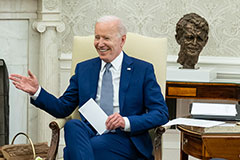 |
précisSeptember 15, 2021Global policy advice for President BidenIn this issue of précis, we continue to explore many of the global challenges facing the Biden administration. Scholars affiliated with the Center offer their advice to the US president on a range of policy issues, including arms control, cybersecurity, financial recovery, human displacement, and how to approach Iran and Russia. |
 |
précisSeptember 15, 2021precis Interview: Claude GrunitzkyAfter graduating from MIT as a Sloan Fellow in 2012, Claude Grunitzky founded TRUE Africa as a news and culture website to promote African perspectives about modern Africa. In 2019, Grunitzky, a research affiliate at CIS, launched his next venture—TRUE Africa University (TAU)—which is currently incubated at the MIT Abdul Latif Jameel World Education Lab (J-WEL). He created and produces the MIT X TAU webinar series at CIS. |
 |
précisSeptember 15, 2021Fear and a pattern of political killing in RussiaPutin and his regime are certainly a 21st-century autocracy, but that does not mean that fear is absent or they hide violence from public view as an informational autocrat should. Fear-driven inference and the pessimistic risk assessments of fearful individuals amplify the effect of comparatively low levels of violence. PhD student Suzanne Freeman explains. |



